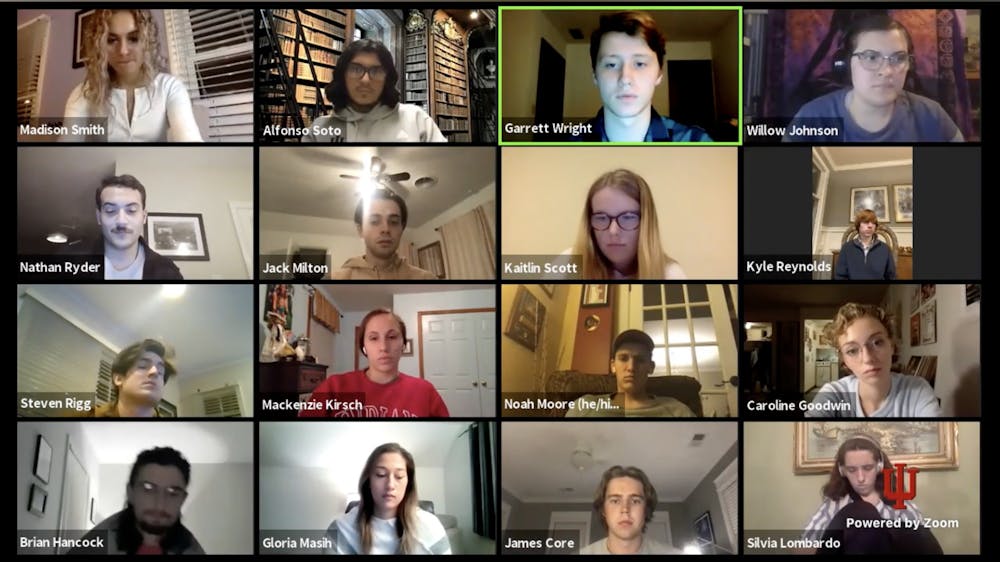As many students leave campus until February, different facets of student life will move off campus. But for IU Student Government, not much will change.
The IUSG Congress has been meeting online all semester and will continue to be until further notice.
“We are going to still be meeting online,” Garrett Wright, speaker of IUSG Congress, said. “Of course, we’ll examine what happens over Christmas break. We might meet, but I’m not sure, just because that’s not during the semester. We haven’t come to a final decision about that yet.”
IUSG President Rachel Aranyi said the executive team is continuing their work online as well.
“We’ve been using these online tools for a while now,” Aranyi said. “We’ve been conducting online cabinet meetings for the last few months. That won’t change.”
Aranyi said a lot of the executive committees have also been online rather than in person due to risks associated with COVID-19.
“A lot of the committees within exec have already been meeting online,” she said. “The interns were never all in Bloomington, so we’ve had virtual interns since the beginning. Not much will really be changing for exec.”
Aranyi said she wants everyone to know IUSG is still working despite this break.
“We’re continuing to work hard, and we want to hear from students,” Aranyi said. “We are continuing to fight for student needs. That will never change.”
The move off campus for many students doesn’t mean important issues won’t be discussed, Wright said. IUSG Congress will soon continue debate on some pressing issues.
“The biggest thing that seems to be in Congress right now is a constitutional resolution that was introduced at our last meeting,” Wright said. “The bill basically restructures the seating in Congress.”
The bill would add 31 seats to IUSG Congress’ current 62-seat body, a substantial increase. Similar legislation has been presented to the body before, but it has failed to garner enough support in prior sessions.
“The bill adds multicultural seats to Congress to represent historically underrepresented or disadvantaged communities,” Wright said. “It would be appointed by apolitical student organizations, so they wouldn’t be elected.”
The bill was authored by IUSG members Rebekah Amaya and Brian Hancock, and IU student Lindsey Batteast. The Committee on Government Oversight and Reform has jurisdiction over the bill.
“The current IUSG Congress does not provide adequate representation for minority students, and this has been the state of affairs since its inception,” the bill states. “In hopes to ameliorate egregious disparities in representation, we bring forth this resolution to provide multicultural groups representation in Congress.”
Wright said he personally has not formed an opinion on the bill, but there are some parts of the bill that could concern members, such as the number of added seats proposed.
“There are a lot of things here that are concerning to some people,” he said. “This is not a cut and dry, pass it and move on type of bill. A lot of people may be uncomfortable adding seats constitutionally for specific ethnic groups or minorities, not so much they don’t want them to have seats but more so because those are seats defined specifically for a race or culture. There are tokenization concerns.”
The bill is still early in the legislative process and will likely hear debate over the next few months. Nevertheless, the standards for constitutional resolutions are intentionally high. It will require a two-thirds majority of IUSG Congress and a two-thirds vote of the student body’s voters to be enacted.
Editor's note: Rebekah Amaya and Brian Hancock write for the IDS opinion desk.
Clarification: An earlier version of this article did not include the names of all the authors of the bill. All names have now been added.




